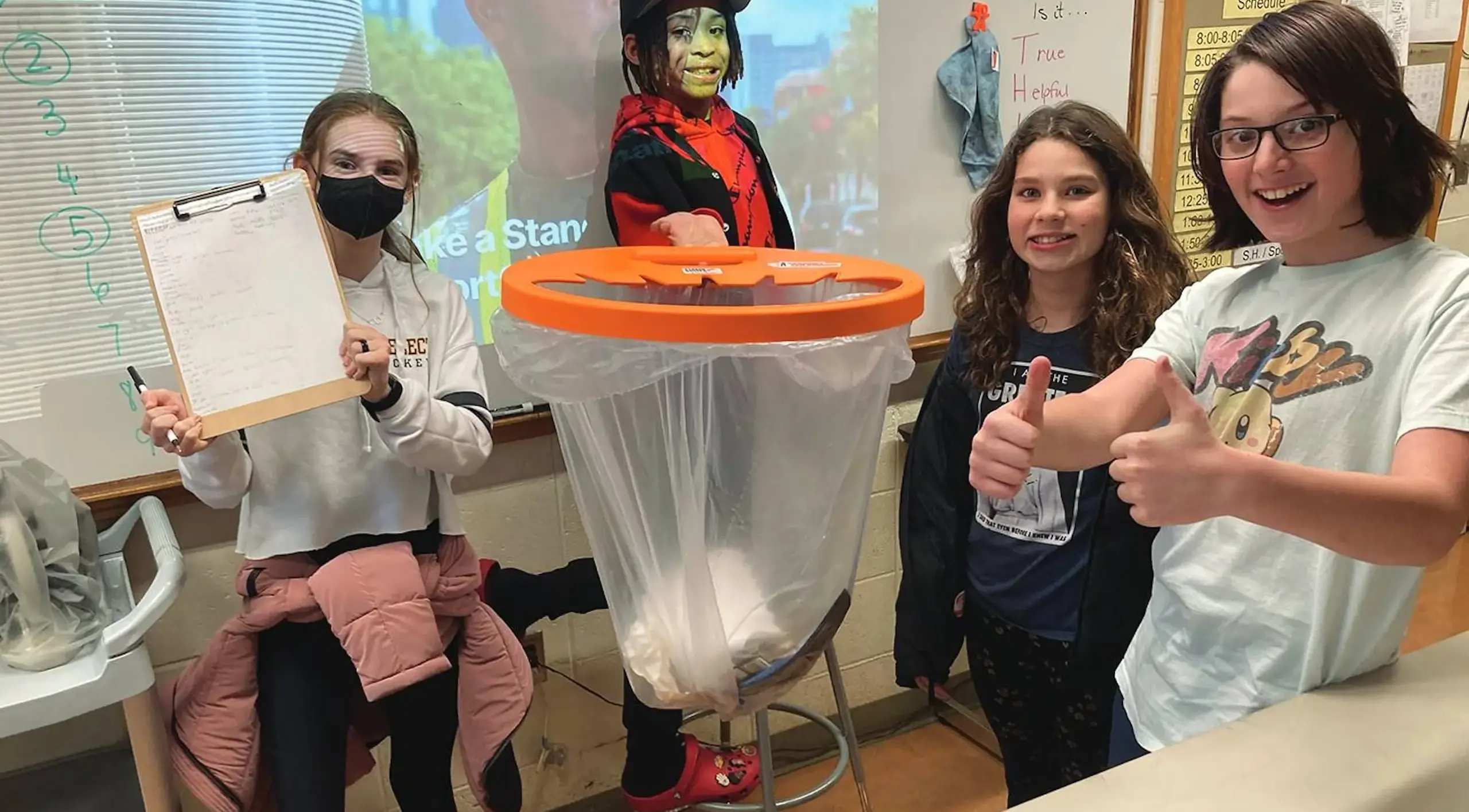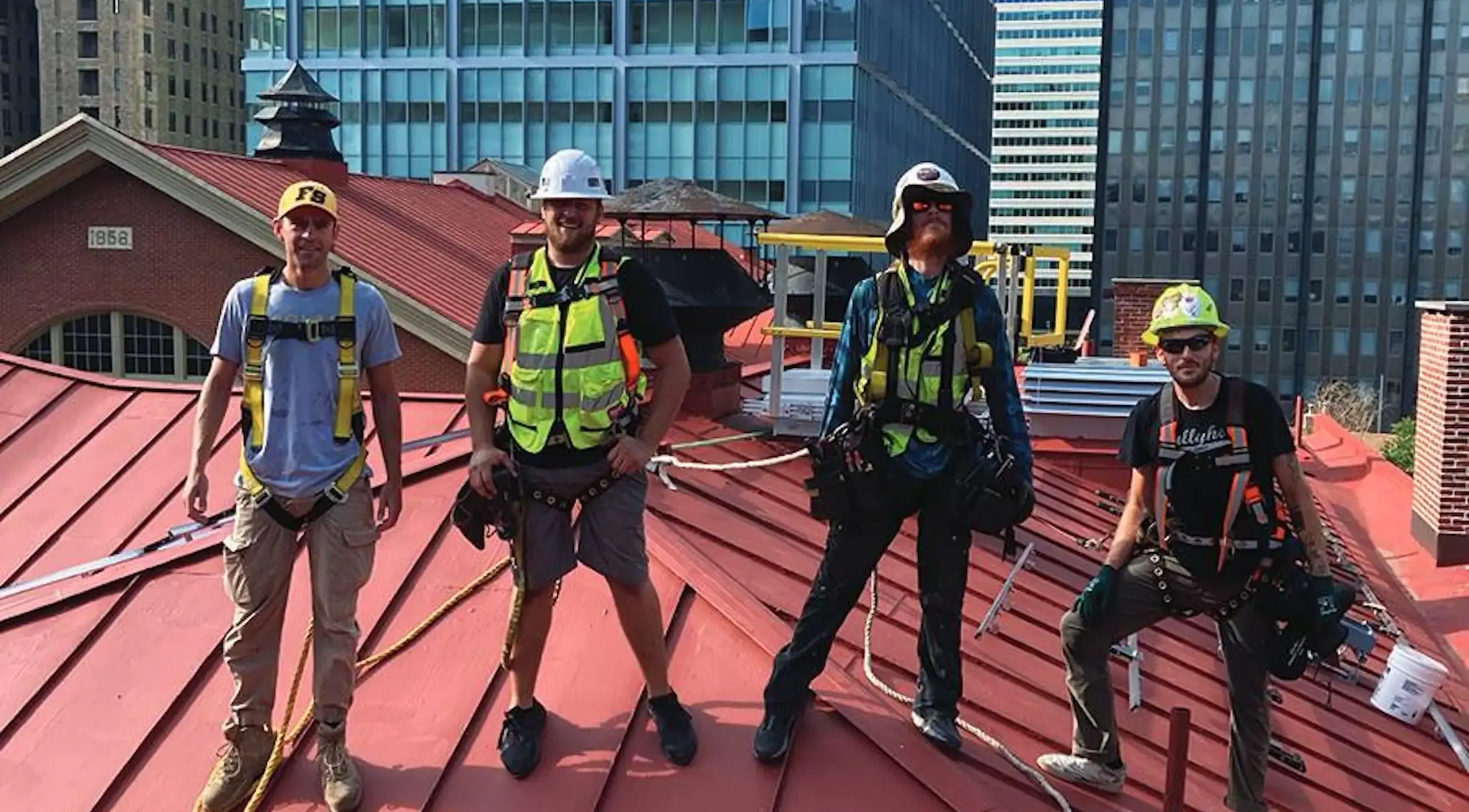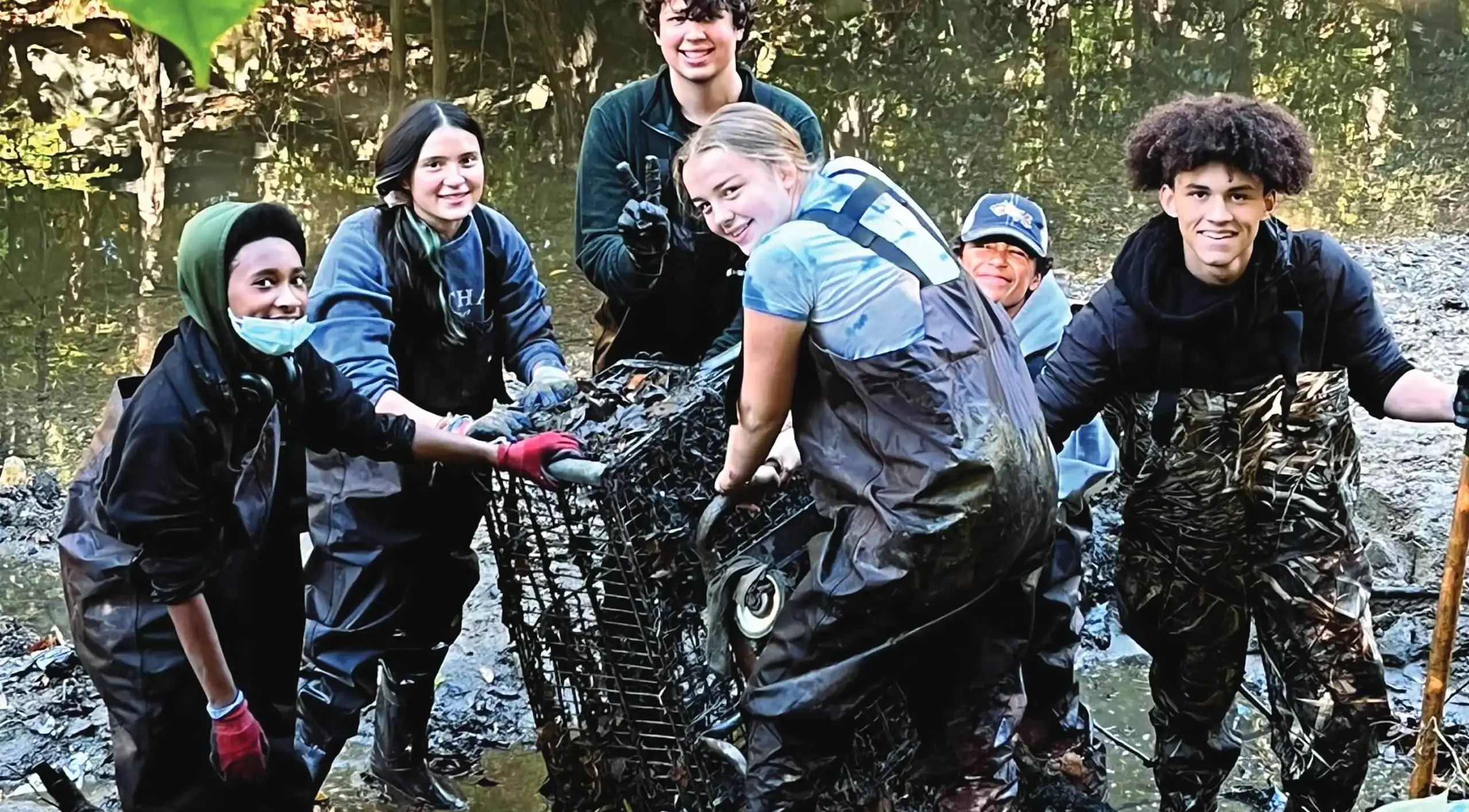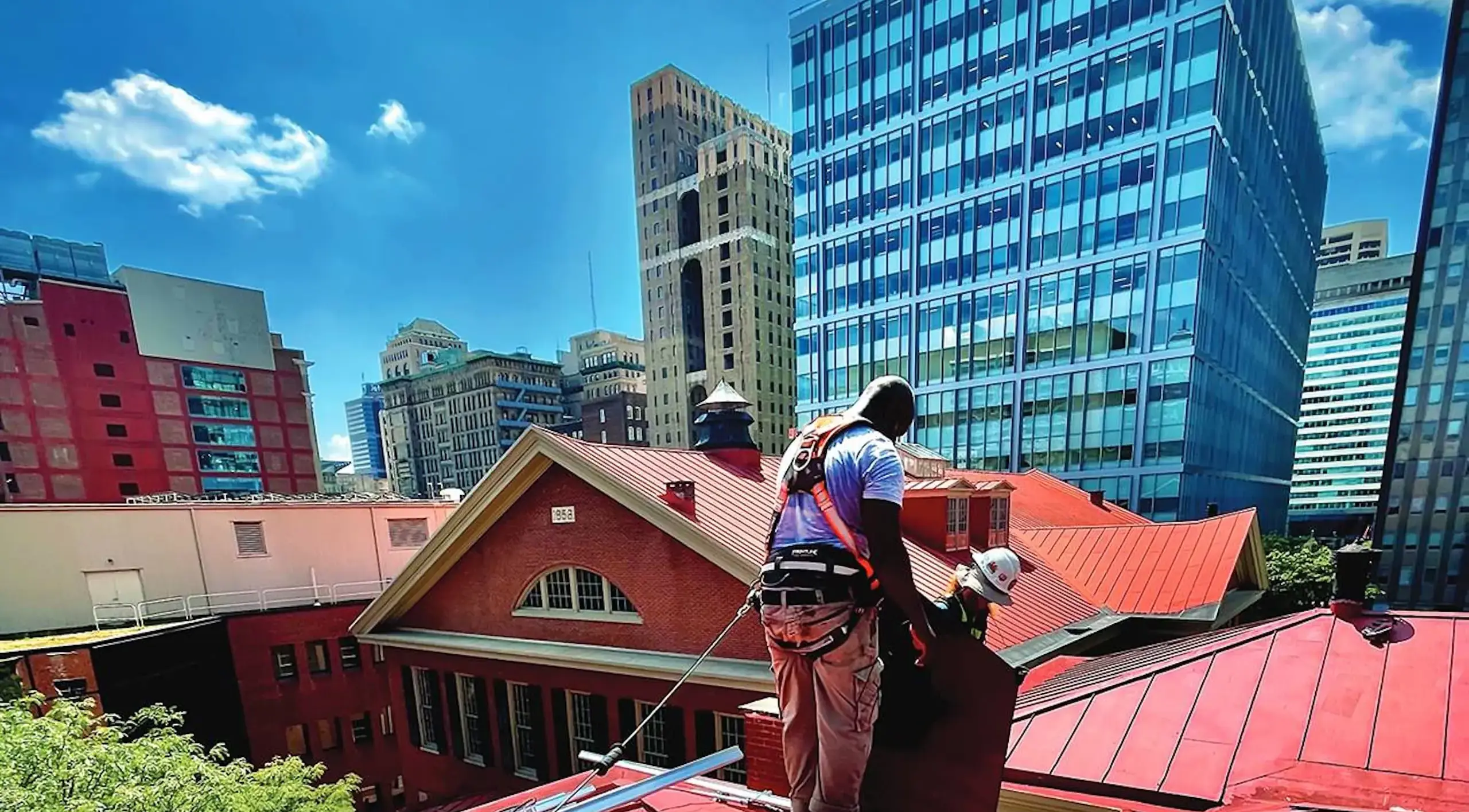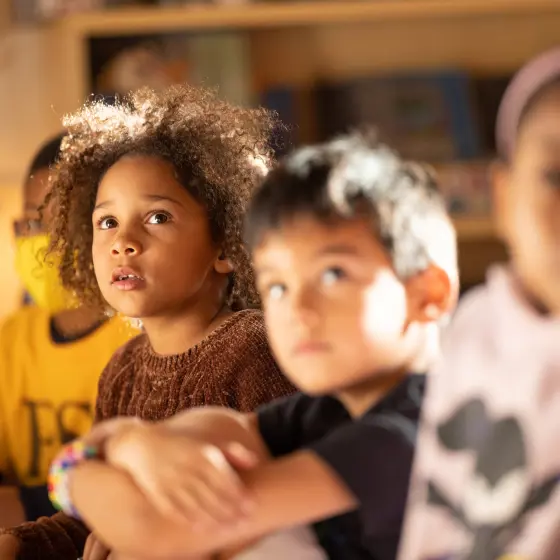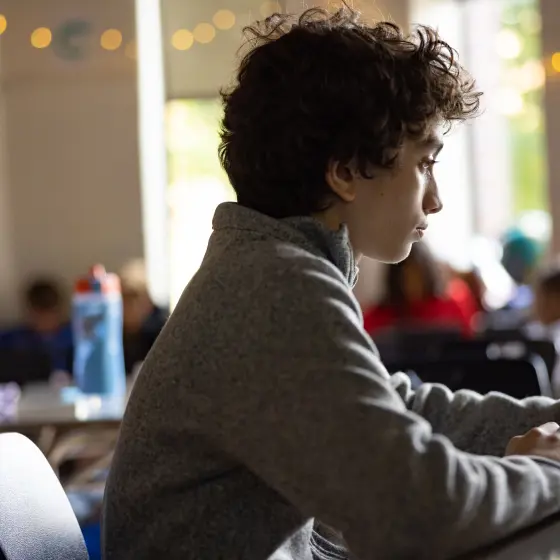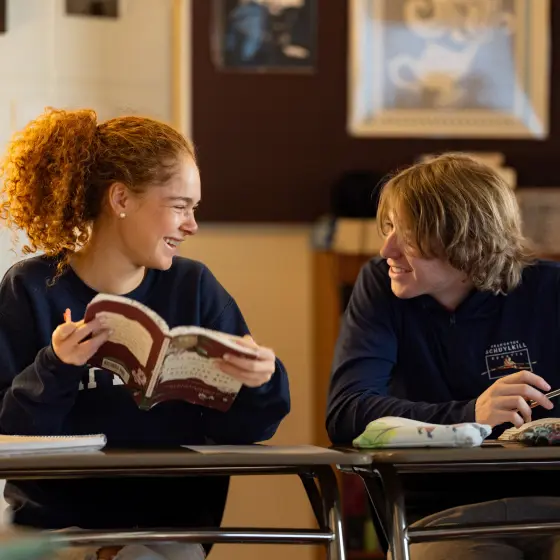Incorporating Environmental Sustainability to Advance Friends Select
Students are incredibly involved in driving considerations related to environmental sustainability.
|
For example, the upper- and middle-school environmental clubs have long compelled school leadership to identify ways Friends Select is taking responsibility from a carbon perspective and to consider a climate action plan. In 2022, a then senior student and leader in the upper school environmentalism club, Corey Becker ’22 created the Sustainability committee. Now composed of 20 people representing faculty and staff from all divisions, parents, board members, and students, the mission of the committee is to make the Friends Select community as sustainable as possible—ideally carbon neutral—within the foreseeable future. |
Friends Select School’s administration and board of trustees are augmenting the existing framework of its strategic plan, Advance Friends Select, to include initiatives that will emphasize the school’s dedication to environmental sustainability.
“Incorporating thoughtful environmental sustainability into our strategic goals is in keeping with who we are as a Quaker school,” said Friends Select head of school Michael Gary. “I’m pleased that we will be giving deeper attention to our role in our environment.”
A Strategic Focus
As the strategic plan approached its fifth year last December, the board of trustees oversaw an assessment that revealed accomplishments in each of its pillars: excellence in teaching and learning, strategic partnerships and relationships, financial sustainability and endowment growth, and use of space. “Our study also showed us what our strategic plan was missing, and environmental sustainability had not yet been reflected directly,” explained board clerk Ingrid Lakey ’89, P’27. “We as a board are excited to create a process that will include all members of our community to develop this piece, either as a fifth pillar or incorporated into the current four pillars of the plan.”
The inclusion of environmental sustainability as a strategic focus is in line with Friends Select’s identity. Stewardship is both a testimony of Quakerism as well as a core organizational value of the school. Care for the planet, a focus on environmental issues, social responsibility, and equal access to resources are themes that appear in the school’s educational curriculum, extracurricular activities, student clubs, service projects, and community events. A deliberate commitment as a strategic goal will further develop and uphold a culture of environmental sustainability within the school as well as its role in the city.
The school’s decisions related to the Advance Friends Select: Transformation Campaign have deliberately considered both environmental and financial sustainability—the impact of the school’s investment decisions related to the environmental and social influences of the projects. Friends Select has a longstanding relationship with Anchor Management Group, for whom environmental sustainability is a focus in every step of the campaign projects’ design processes, from demolition and construction to the use of renewable materials and environmentally-sensitive products. “In the transformation of the first floor of the Parkway Building, buying and renovating the STEAM Building, replacing the rooftop field surface—for each of those projects, the school was thoughtful regarding environmental sustainability and how our choices are directly related to the health of our environment,” Ingrid said.
A Collaborative Approach
Last March, Friends Select engaged local leaders in a panel discussion for the second Transformation Talk, “Creating and Educating a More Sustainable Philadelphia.” Featuring Rich Freeh (Green Building United), Caroline Goodbody (Comcast Smart Solutions), Nidhi Krishen (Philadelphia Office of Sustainability), and STEAM Building partner Micah Gold-Markel ’95 (Solar States), the conversation examined what a sustainable Philadelphia looks like, what role our city’s leaders play in achieving that vision, and how educational institutions such as Friends Select can teach and embody sustainable design.
For Michael, the Transformation Talk identified the importance of collaboration between city institutions. “What our speakers lifted up was that there is space for us as organizations to not just learn from each other but also to link together, rather than continue to work in silos,” he said. “In doing that, we are showing shared responsibility and lessening individual expenses, so that we can collectively do more as we spread the work and benefits across institutions.” Of the panel discussion, Ingrid added, “I really appreciated how intersectional the conversation was. Climate change, racism, socioeconomic class, poverty, and privilege and their interconnectivity were clearly addressed.”
Students are incredibly involved in driving considerations related to environmental sustainability. For example, the upper- and middle-school environmental clubs have long compelled school leadership to identify ways Friends Select is taking responsibility from a carbon perspective and to consider a climate action plan. In 2022, a then senior student and leader in the upper school environmentalism club, Corey Becker ’22 created the Sustainability committee. Now composed of 20 people representing faculty and staff from all divisions, parents, board members, and students, the mission of the committee is to make the Friends Select community as sustainable as possible—ideally carbon neutral—within the foreseeable future.
The Sustainability committee is collaborating with the CulinArt Group and the kitchen staff to increase the number of plant-based food options in the Matthew Huffman ’91 Dining Hall while educating the school’s community about how a vegetable-based diet is an effective way to decrease one’s ecological footprint. The group is also engaging the community in improving recycling habits at school; encouraging sustainable commuting for all members of the community (e.g., walking, biking, and taking public transit); exploring ways to transition from boilers to the most sustainable district heating system; and investigating ways to divest the school’s endowment from companies that lack environmentally sustainable practices.
“Stewardship is a core value of the ideological heritage of Friends Select, and the most important kind of stewardship of our globe right now is to change our wasteful consumption habits and decrease our ecological footprint,” said middle school Latin teacher and world languages department chair Erik Hermans, who chairs the Sustainability committee. “This committee is thus directly aligned with the core values of our school. The administration and the board have consistently been very supportive of this committee, and the fact that they are actively involved in making sustainability a pillar of the strategic plan is a testament to that.”
Where Next?


